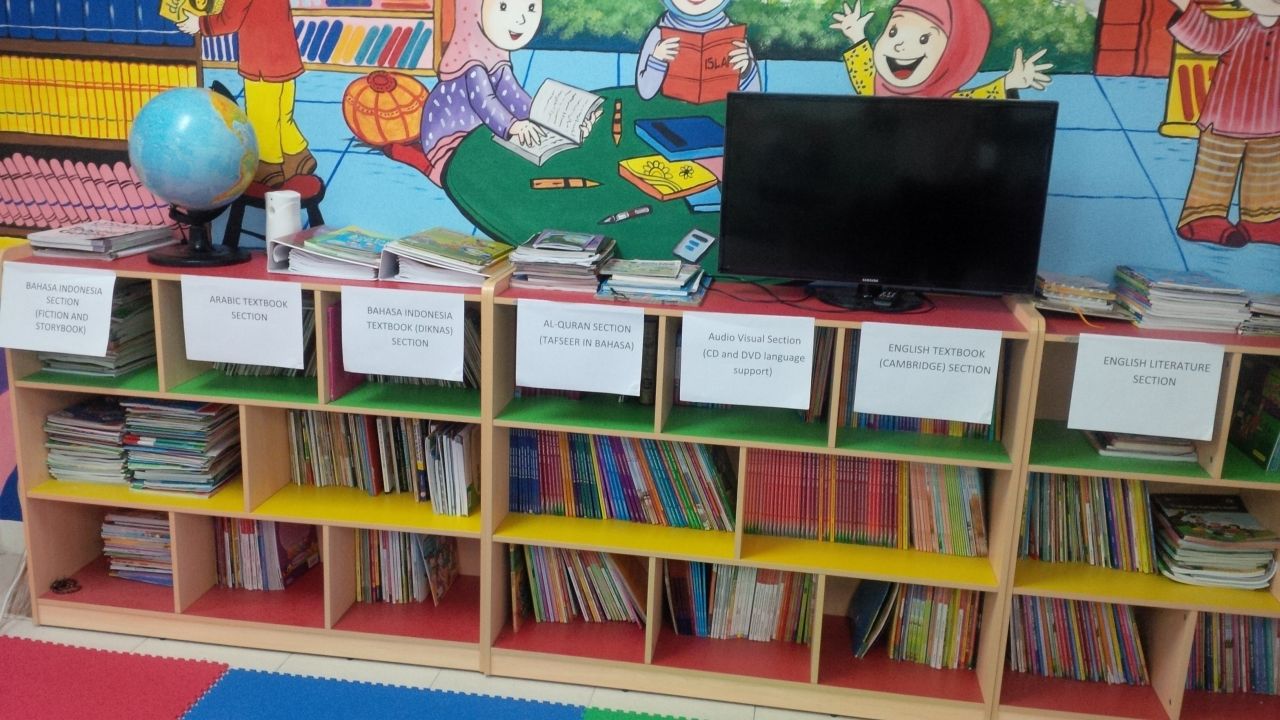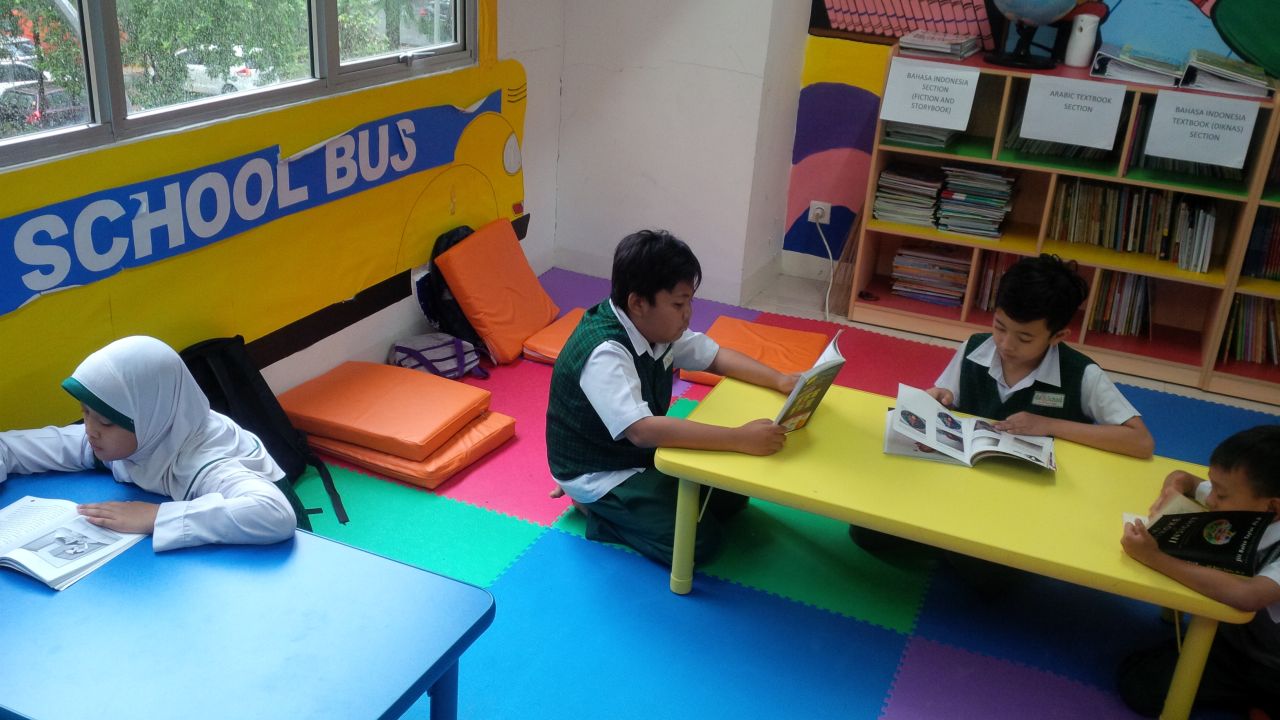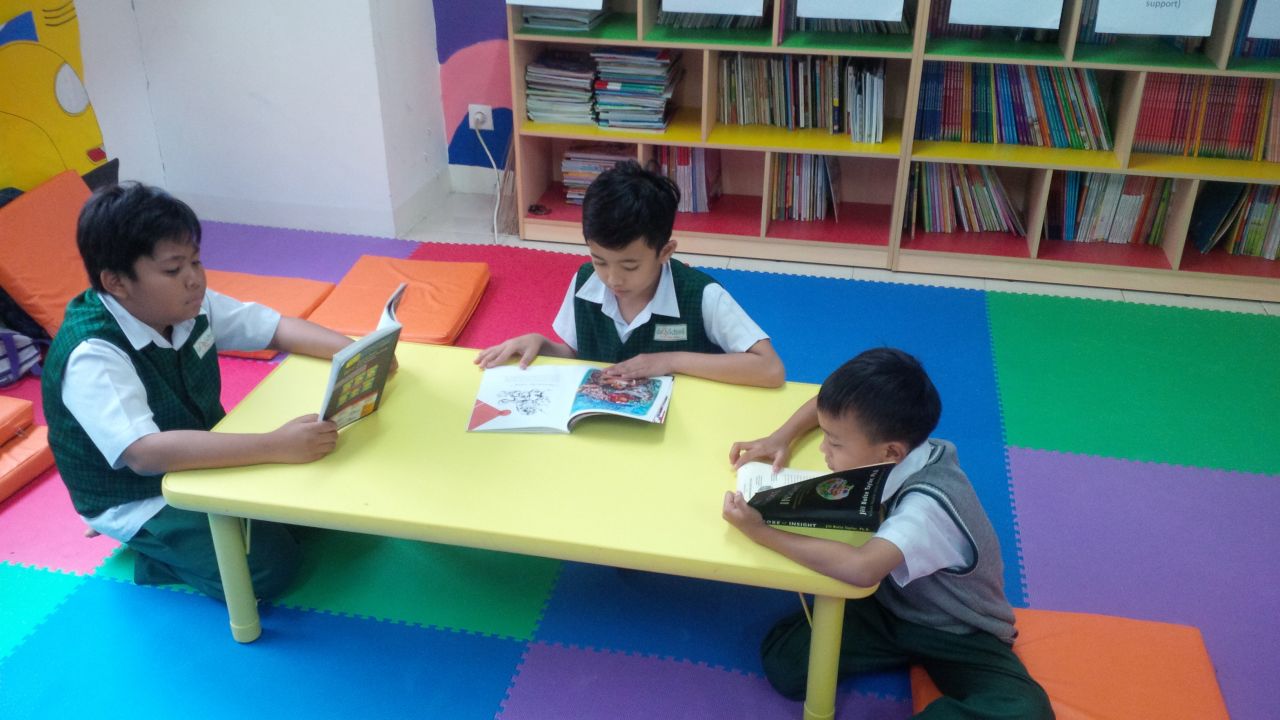By: Mr. Darmawan M. (head of library of SD Daarul Quran Kalibata City)
Nowadays students think that library is no longer an interesting place to stay and gain knowledge. It has become an obsolete place compared to shopping malls, plaza, trade centers and many other convenient public places.
Nevertheless, in terms of getting knowledge, library is an endless source of information since the collection it has will keep on being upgraded. Its role in broadening the horizons of thought of every learner is vital and therefore cannot be replaced by any other cyber-age media.
Libraries are portals to all of the world’s knowledge. And librarians make sure that knowledge continues to be recorded and saved for the future, even as information-storage devices and formats change. The information kept in libraries helps everyday people start their own small businesses, which helps grow the economy. There is much more to doing real research than typing a few words into a search engine such as Google.
Librarians are trained to do high-level research, which supports scientists, doctors, lawyers, professors, writers, government officials, and other important professionals every single day. Without the aid of librarians, all of these people would be making decisions without having all of the relevant knowledge they need on their topics. Librarians offer basic computer classes for anyone who wants to get up to speed without paying for long-term, expensive classes.
Librarians have actually saved lives by providing information to doctors who were dealing with difficult cases. Only a tiny fraction of the world’s information is available for free on the internet. But all of it is available through libraries. Librarians are the original, and still the best, search engines.
In Islamic civilization and culture, libraries are not a new thing. In Aleppo, Syria, for example, the largest and probably the oldest mosque library in the world, the Sufiya, located at the city’s Grand Umayyad Mosque, contained a large book collection of which 10,000 volumes were reportedly left by the city’s most famous ruler, Prince Saiful-Dawla. Ibn al-Nadim‘s bibliography Fihrist demonstrates the devotion of medieval Muslim scholars to books and reliable sources; it contains a description of thousands of books circulating in the Islamic world circa 1000 (10th century AD), including an entire section for books about the doctrines of other religions. Modern Islamic libraries for the most part do not hold these antique books; many were lost, destroyed by the Mongols, or removed to European libraries and museums during the colonial period. In other words, those priceless books “were stolen” by the West.
The existence of libraries ensures that knowledge and technology are available to everyone, not just to those who can afford their own. This is more than charity work; this helps raise the education levels of society as a whole. Libraries are spaces where people of all ages can practice lifelong learning ( ).
SD Daarul Quran Kalibata City Jakarta has started to build a small library which in turn will grow into a big national library that can cater the need of the whole nation. May Allah grant our wishes. Amiin Ya Robbal Alamin.



